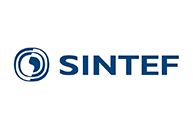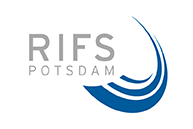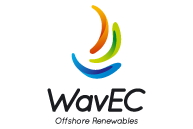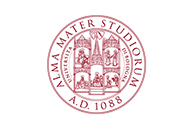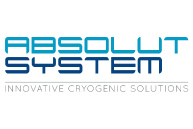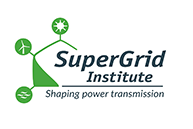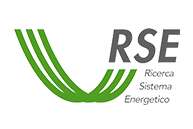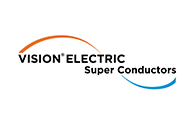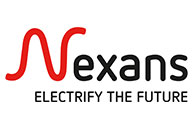SINTEF is a broad, multidisciplinary research organisation with international top-level expertise in the fields of technology, natural sciences, medicine and social sciences.SINTEF conducts contract R&D as a partner for the private and public sectors, and is one of the largest contract research institutions in Europe.The SINTEF vision is Technology for a better society.
The Research Institute for Sustainability (RIFS) conducts research to understand, advance, and guide processes of societal change towards sustainable development. The RIFS research approach is transformative, transdisciplinary, and co-creative: it engages in regular dialogue with representatives and organisations from politics, civil society and the private sector. This enables the RIFS research groups to bring together all relevant forms of knowledge generated both within and outside science in order to better understand problems and identify appropriate solutions through collaboration.
WavEC Offshore Renewables is one of the leading research and innovation centres in this area in Europe, particularly in wave energy and floating wind energy. WavEC has a long track record of development of tools for direct support to the marine energy industry, including both technical and non-technical tools. WAVEC has long experience in ocean and floating wind energy technology particularly at R&D level, but also, and depending on the cases, on conceptual, design, construction, deployment and operational phases.
The Institute of Electrical Engineering Slovak Academy of Sciences (IEE SAS) was established in 1953 and covers topics in electronic and electrical engineering and solid-state physics supported by extensive material research. Its researchers implement international EU projects and national projects supported by the APVV and VEGA agencies. Involved in SCARLET is the Department of Superconductors, which is focused on development of superconducting wires, cables and coils for DC and AC applications. The topics of transport capability and AC loss are studied in a wide range of activities spanning from theoretical work and modelling up to manufacturing and testing of laboratory-scale models.
Almost 1000 years old, the University of Bologna (UNIBO) is known as the oldest University of the western world. Nowadays, UNIBO still remains one of the most important institutions of higher education and research across Europe and the second largest university in Italy. Organised in 32 scientific departments, UNIBO is engaged in frontier research in science and technology, including energy and electricity sectors, with a long experience in superconducting technologies for the energy transition.
Absolut System, affiliate of Groupe Absolut, was established in 2010 and has been designing innovative, ultra-complex and customized cryogenic systems between -180°C and -271°C. Thanks to its core technologies and rare skills in the cryogenics market, the company is working for a wide range of applications (industry, laboratories, research programs, aeronautics and space). With its international scope and involvement in numerous strategic projects (ASCEND, H2 Hub Airport, Copernicus), Absolut System is helping develop French sovereignty in the fields of space, environmental control, new energies, and quantum computing. Its clients include leading companies such as Airbus, Thalès and Safran, as well as agencies such as CNES, ONERA, DGA, ESA and NASA.
ESPCI Paris – PSL (officially École supérieure de physique et de chimie industrielles de la Ville de Paris) is a major institution of higher education (a French “Grande École d’ingénieurs”), an internationally renowned research centre, and a fertile ground of innovation for industry. Founded by the City of Paris in 1882, the School has been attracting leading scientific innovators for over a century. It trains undergraduate and graduate students in physics, chemistry and biology and conducts high-level research in those fields.
SuperGrid Institute is a world-class authority in systems and technologies for high-voltage direct current and medium-voltage direct current. Its work actively contributes to the energy transition by removing technical barriers to the deployment of future power grids. At a time when it is increasingly important to lower our dependency on fossil fuels and reduce greenhouse gas emissions, SuperGrid Institute delivers solutions for renewable energy integration that provide its customers and partners with a strong competitive advantage.
RSE – Ricerca sul Sistema Energetico S.p.A. is a public company entirely owned by GSE, which is owned in turn by the Ministry of Economy, with the mission of performing R&D programs of public interest, in order to address the national electro-energy and environmental goals. About 350 people, 80% of them technicians and researchers, carry out strategic research in the electricity and energy sector, with strong emphasis on experimental applications.
RINA Consulting is an engineering consulting society that provides a wide range of services covering the entire project lifecycle: feasibility and specialized studies, preliminary and executive design, project management, site engineering, and plant and system O&M engineering, offering traditional and innovative services for critical industry sectors, including Oil & Gas, power generation, renewables, space & defense, transportation and infrastructure.
SuperNode is a cutting-edge global technology development company that designs superconducting connection systems to connect renewable generation and increase grid interconnection in mature markets. SuperNode was founded in 2018 by Eddie O’Connor and Mainstream Renewable Power. SuperNode is now co-owned by founder Eddie O’Connor and Norwegian green investment group AKER Horizons. SuperNode’s vision is that people should have access to secure, affordable and renewable energy. We believe our revolutionary superconducting cable technology will be a key enabling factor in achieving this vision.
Vision Electric Super Conductors (VESC) was founded in 2014 and develops superconducting systems for industrial and grid applications. VESC has developed and installed the worldwide first modular superconducting busbar at 20 kA and is taking the next steps for the commercialisation of this unique technology. Apart from superconducting busbars, VESC also provides superconducting cables and single system components. Additionally, VESC supplies copper and aluminium busbars, and carries out engineering work for a variety of high-current projects.
ASG Superconductors is a worldwide leader in the production of magnets both for scientific research and for the industrial sector. By developing the magnesium diboride (MgB2) wire, ASG has succeeded in designing and optimizing products ranging from power cables to magnets for the medical and energy sectors. With the unique ex-situ manufacturing process, MgB2 wires are now available with electrical performance, mechanical properties, and single-piece lengths that allow for great flexibility, while keeping the advantage of the higher operating temperature.
For over a century, Nexans has played a crucial role in the electrification of the planet and is committed to electrifying the future. The Group is a leader in the design and manufacturing of cable systems and services across four main business areas: Building & Territories, High Voltage & Projects, Industry & Solutions and Telecom & Data. The Group pledged to contribute to carbon neutrality by 2030. Furthermore, Nexans is a global leader in high temperature superconductor (HTS) technology for power grid applications, manufacturing HTS cables as well as HTS fault current limiters. SCARLET benefits from the participation of both Nexans France and Nexans Germany in the project.
